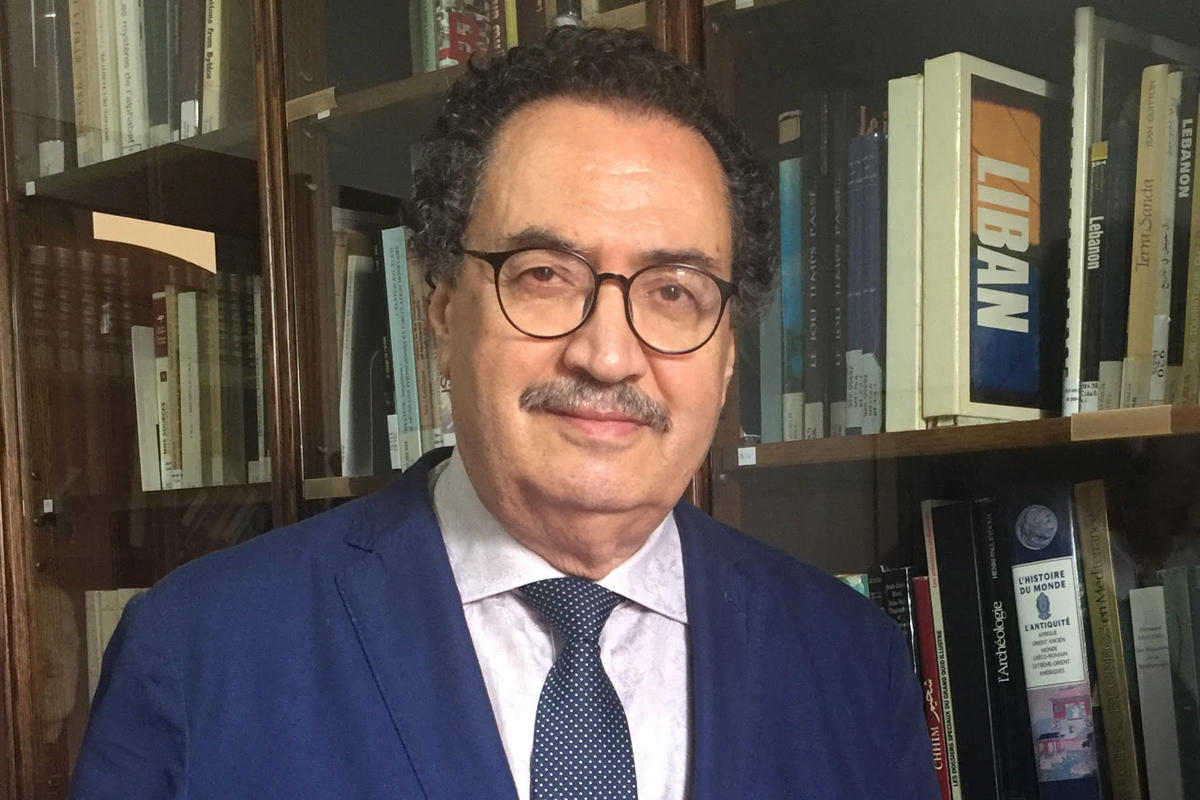LAU Louis Cardahi Foundation Director Elected President of Phoenician Heritage Organization
Dr. Rachid Chamoun is named head of the International Confederation of the Phoenicians’ Route.
Dr. Rachid Chamoun’s efforts to preserve cultural heritage, a journey on which he embarked 17 years ago, were recently rewarded with his prestigious appointment as president of the International Confederation of the Phoenicians’ Route. The international organization is dedicated to the revival of ancient ties established by the Phoenicians with other Mediterranean civilizations through a network of sea routes that facilitated the exchange of goods, culture and ideas.
“This is a great position for LAU and Lebanon, not only me personally,” said Dr. Chamoun, who is also a lecturer at the School of Architecture and Design.
The project, which so far includes nine official members – Spain, France, Italy, Malta, Croatia, Greece, Tunisia, Lebanon and the Governorate of Jericho – is an ambitious initiative that links three continents and as many as 18 countries and 80 towns with shared Phoenician and Punic origins dating back to the 12th century BC.
Dr. Chamoun, an urban design and planning specialist, has been involved in cultural heritage projects since 2001. The scholar presently heads LAU’s Louis Cardahi Foundation (LCF), where he has focused his efforts on revolutionizing the foundation’s work. LCF was originally created as a private foundation to honor the late Louis Cardahi’s mission to preserve and promote his native Byblos’ rich heritage. In order to broaden the foundation’s involvement in cultural activities in the city and enhance its visibility, the Cardahi family granted control of the foundation to LAU in 2013.
Some of Dr. Chamoun’s most significant contributions to LCF were the digitization of the library and the establishment of a state-of-the-art digital museum dedicated to the Umayyad Route, a project similar in its mission to the Phoenicians’ Route except that it focuses on the countries that fell under the control of the first Islamic Dynasty.
“We had all the support in the world from the university’s operations department, the IT and planning departments, the School of Architecture and Design, and the Marketing and Communications Department. We worked together like a beehive,” said Dr. Chamoun of his work on the Umayyad Route Museum. He also recognized the valuable contribution of the LCF Governing Board and Advisory Committee as well as the local community.
After this successful teamwork, Dr. Chamoun flew to New York to present an exhibit on Byblos at the United Nations. It was there that he was contacted by the Council of Europe with a proposition to become a member of the International Confederation of Phoenicians’ Route Scientific Steering Committee, an offer also extended to LCF.
With Dr. Chamoun’s appointment, Lebanon has gained a prominent position in the international organization, which will open the door for a flurry of cultural and touristic activities, in addition to funding opportunities, connected with the Phoenicians’ Route. An inaugural ceremony to launch the confederation’s activities in Lebanon is planned for January of next year.
In addition to fostering intercultural dialogue, the Phoenicians’ Route seeks to promote human rights, democracy, and the rule of law, all core values of the Council of Europe. Since the initiative includes countries that have been affected by conflict, one of its main objectives is to pave the way for peace and respect among the participants through the support of freedom of expression, equality, and the protection of minorities.
LCF’s involvement in the Phoenicians’ Route project in Lebanon will consist of two roles. First, the center will offer scientific expertise by identifying the Phoenician Cultural Heritage Route within the country and providing descriptions of monuments. Second, LCF will play an outreach role though the promotion of heritage preservation at the community level. The foundation will provide training on how to prevent damage to heritage sites, raise cultural awareness, increase public engagement through use of technology, foster intercultural dialogue, and establish centers to support cultural tourism and safeguard archeological sites. According to Dr. Chamoun, LAU students, the university’s greatest resource, will be heavily involved in these activities.
Outside of Lebanon, Dr. Chamoun will focus his efforts in his new position on promoting academic and cultural exchanges among the confederation’s member countries. The goal of these exchanges is to encourage more research and enhance cultural tourism.
In spite of his busy schedule, Dr. Chamoun plans to continue teaching one or two courses per term in order to stay connected with the classroom.
“I consider students to be a major asset in our exploration and support of cultural heritage,” he said. “They are an important part of my life. I cannot proceed without them.”
